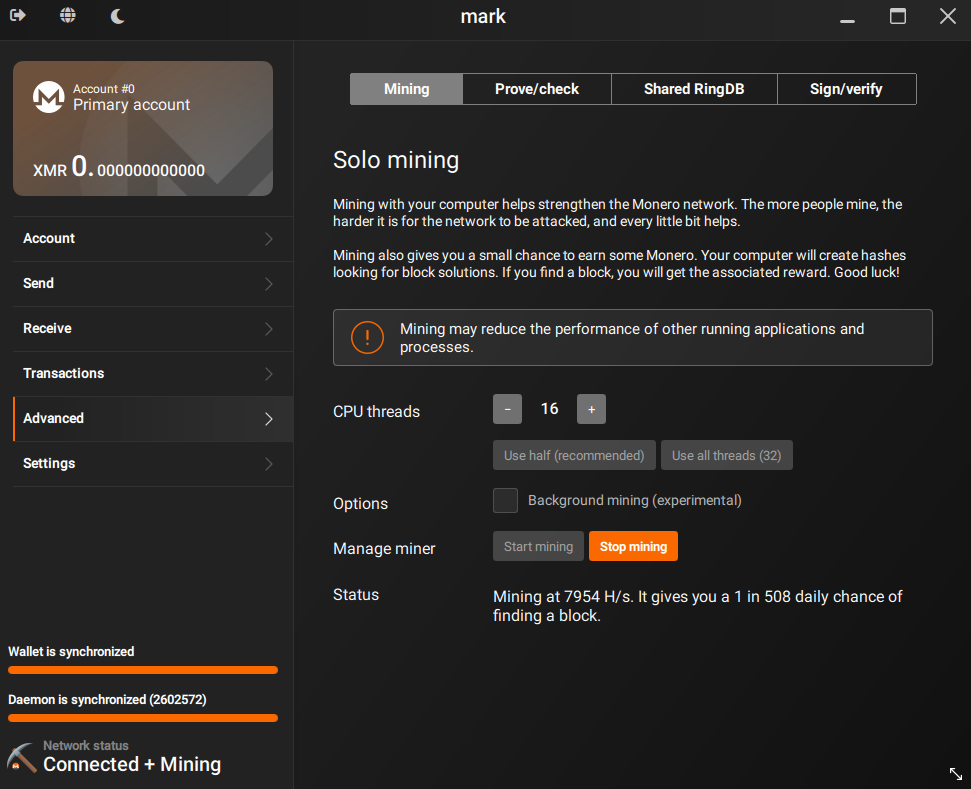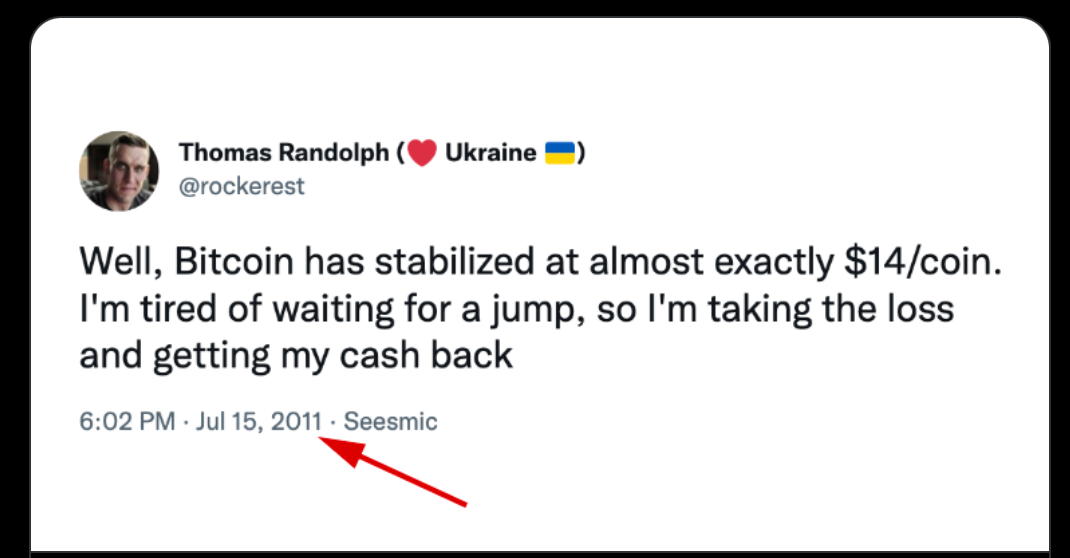The Bitcoin/Crypto Thread
-
US Department of Labor basically says "no" on having crypto currency in a 401K plan.
-
https://www.cnn.com/2022/04/03/tech/axie-infinity-hack-party-nft-la/index.html
Crypto gaming platform, where the crypto assets that are supposedly backing the in-game currency got hacked, and the players now cannot convert their in-game currency back into trade-able crypto assets.
Also some unusual things about “digital serfdom” and “crypto Ponzi,” where a properly registered gamers can hire others (from low income communities) to play on their behalf, or to “rent out” their gaming credentials to others and split the earnings from playing the game.
-
-
I wonder how many levels deep you have to go under Biden before you reach the first person who has a clue about crypto.
@Horace said in The Bitcoin/Crypto Thread:
I wonder how many levels deep you have to go under Biden before you reach the first person who has a clue about crypto.
I am guessing four levels on the policy making side, three levels on the law enforcement side.
Policy making: POTUS, Treasury Secretary, head of some Crypto task force, some scientists/engineers on the task force who actually know crypto.
Law enforcement: POTUS, head of the Secret Service, head of some crypto crime investigative unit (who I expect is some one who has solid STEM background and understands enough about crypto currency to investigate crypto crimes)
-
I wonder how many levels deep you have to go under Biden before you reach the first person who has a clue about crypto.
@Horace said in The Bitcoin/Crypto Thread:
I wonder how many levels deep you have to go under Biden before you reach the first person who has a clue about crypto.
Gensler. I guess that’s technically one layer down but pretty far removed operationally from the WH.
And not at all involved in Biden’s exec order I’m sure. But it is the answer to the question
-
@Horace said in The Bitcoin/Crypto Thread:
I wonder how many levels deep you have to go under Biden before you reach the first person who has a clue about crypto.
Gensler. I guess that’s technically one layer down but pretty far removed operationally from the WH.
And not at all involved in Biden’s exec order I’m sure. But it is the answer to the question
@jon-nyc, re: “Gensler”
Thanks!
Per Wikipedia on Gary Gensler:
Gensler is … chair of the U.S. Securities and Exchange Commission … Co-Director of MIT’s Fintech@CSAIL and Senior Advisor to the MIT Media Lab Digital Currency Initiative.
That fits the bill and directly answers @Horace’s question.
A different, future SEC chair may not be similarly credentialed with regards to crypto currency. -
I am syncing the daemons and as soon as all 2.8 million blocks finish synchronizing, I will be ready to start mining Monero.
It's sitting at $234 or so down from a high of 500. It is projected to hit $1000 sometime mid 2020s
Going to put all these extra cores to work when I am not using them.
It's solo mining effort that does have pools but I am going solo. It does not permit ASICs to mine. It is meant for smaller and many CPU and GPU mining operations. I intend to get at least 3 machines in on the effort. 72 threads on off hours, probably 64 during work and 54 during gaming. All CPU based.
-
Mining for the first time. I might just build a solar powered mining rig. If you can get miners to run on solar, the profit margin jumps significantly.

Not sure how far down this rabbit hole I am going to venture, but, it will not just be dipping the toe that's for sure. lol
One report I read said that some people actually do win the BitCoin lottery on occasion using a simple USB stick ASIC miner. One person reportedly solo mined something like 6.5 bitcoin just a short time ago using a $2,500 miner. Made over $250k
Additional miners that look like WiFi access points are producing $30 per day and use very little power on the order or .30 per day.
A solar powered money tree is my goal.
There is one miner available that is producing $250+ per day 365 days per year. It costs a whopping $58k to buy one and the power requirements are pretty stiff but that $250 per day is profit. The payoff is 232 days of operation per miner. Imagine having 4 of them just mining away producing $300k+ of annual profit.
-
@mark are you better off mining bitcoin or a different currency?
I’ve been thinking about buying a moderate mining rig and having Lucas run it at college…
-
@mark are you better off mining bitcoin or a different currency?
I’ve been thinking about buying a moderate mining rig and having Lucas run it at college…
@LuFins-Dad Right now I am mining Monero (XMR).
I am looking to get a couple of small Bitcoin miners and probably one or two that can mine more than one coin and are proven profit centers.
-
I am a noob at all of this myself. Mining is just an application that generates hashes which in turn are used to look for blocks. As you contribute to the building of the block, you get credits for helping out (Proof of Work) and occasionally you hit the jackpot actually find a block. When you find a block I think you are rewarded with a full coin or multiple coins. I have no idea how long it will take for a reward to be issued. I will let you know how it goes.
Anyone can do this. You can allocate the number of processor threads you want to dedicate to the mining process. I am using half of my 32 threads on this AMD 5950X workstation. I have another 5950X machine that I am going to use all 32 threads. Then I am probably going to invest in a dedicated ASIC miner for something that will generate monthly profit. Helium is one that I have read about. There are a few money makers to choose from. I just need to do a lot more research.
-
I am a noob at all of this myself. Mining is just an application that generates hashes which in turn are used to look for blocks. As you contribute to the building of the block, you get credits for helping out (Proof of Work) and occasionally you hit the jackpot actually find a block. When you find a block I think you are rewarded with a full coin or multiple coins. I have no idea how long it will take for a reward to be issued. I will let you know how it goes.
Anyone can do this. You can allocate the number of processor threads you want to dedicate to the mining process. I am using half of my 32 threads on this AMD 5950X workstation. I have another 5950X machine that I am going to use all 32 threads. Then I am probably going to invest in a dedicated ASIC miner for something that will generate monthly profit. Helium is one that I have read about. There are a few money makers to choose from. I just need to do a lot more research.
@mark said in The Bitcoin/Crypto Thread:
Mining is just an application that generates hashes which in turn are used to look for blocks. As you contribute to the building of the block, you get credits for helping out (Proof of Work) and occasionally you hit the jackpot actually find a block.
You typed too fast...
-
It's using your computer's cpu to brute-force the solution to problems that are known to have no elegant, non-brute-force solution. The time-consuming nature of solving these problems, is what enforces scarcity of the results, and that scarcity is what allows the results to be used as currency.
-
Isnt the electricity cost in many cases higher than the actual bit coin made?
I was reading something about how the only people making money are the big companies that can have thousands of computers running on cheap electricity.
-
Isnt the electricity cost in many cases higher than the actual bit coin made?
I was reading something about how the only people making money are the big companies that can have thousands of computers running on cheap electricity.
@taiwan_girl DIY solar using used equipment is very cheap and one you pay off the solar power equipment, it's free.
-
I will admit I dont know much about crypto currency, but it seems to my non-understanding mind that I would have just as much luck ( and may be save money) if I just went out and bought a lottery ticket. LOL
QUOTE
Mining is the process of adding new blocks to the Bitcoin blockchain to validate transactions. It involves a process of trial-and-error that resembles a competitive numeric guessing game in which a correct “guess” completes a block and only the winner obtains rewards in the form of both newly minted Bitcoins and transaction fees. The Bitcoin software automatically adjusts the difficulty of guessing a correct number to maintain a constant time of 10 min between the creation of new blocks. In May 2021, approximately 2.9 million specialized hardware devices worldwide competed in this game, generating 160 quintillion guesses per second2 and consuming approximately 13 gigawatts (GW) of electricity (see Data S1, sheet 10 and 11).
UNQUOTE -
I’ll take a shot. Blockchains are a “chain” of transactions that are public and permanent for all to see. The transactions are chained together in blocks. In order for a block to fit on the chain a very hard math problem needs to be solved. All “miners” are trying to find a solution. The one that successfully does first adds the “block” of transactions to the “chain”. They get a nifty coin as their reward for successfully mining and validating a block of transactions.
So - when people mine at home, they participate in the guessing game to hopefully solve math problems and get coins of their own.
-
@George-K , this video shows you the technical, mathematical, computational basics of "blockchain" and from there tells you what "mining" is.
Link to videoThis next video talks more generally about "mining," not just the computational aspect.
Link to videoIn general, yes, you can "mine" by doing all the calculations by heart or by hand, it will just take you a ridiculously long time to do it. Hence "mining" in practice is done by computers, the faster and the more of them, the better.
